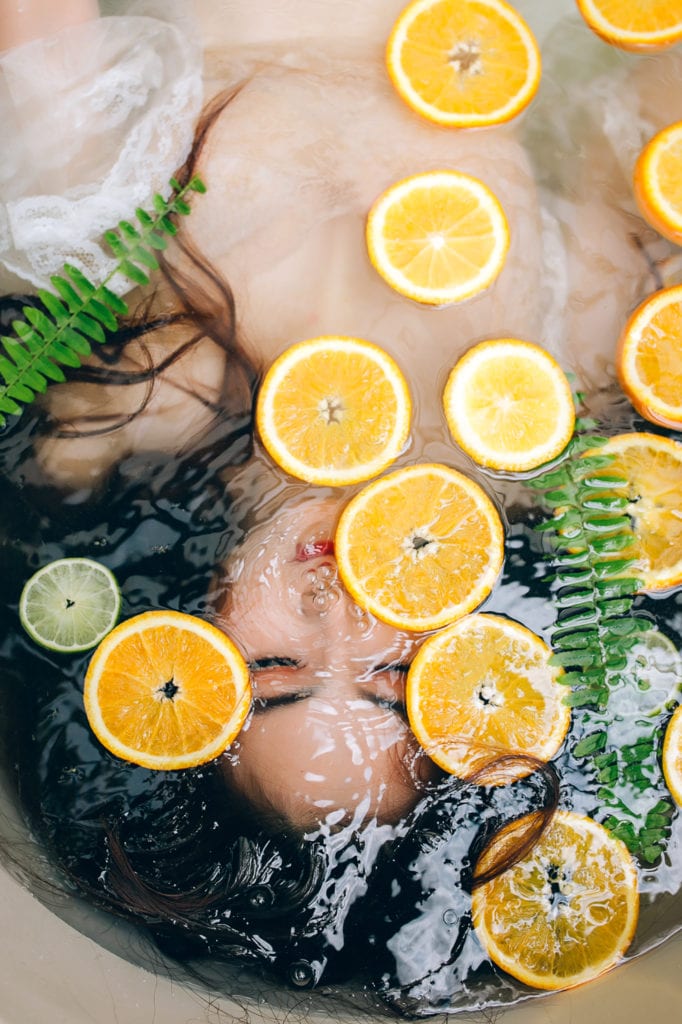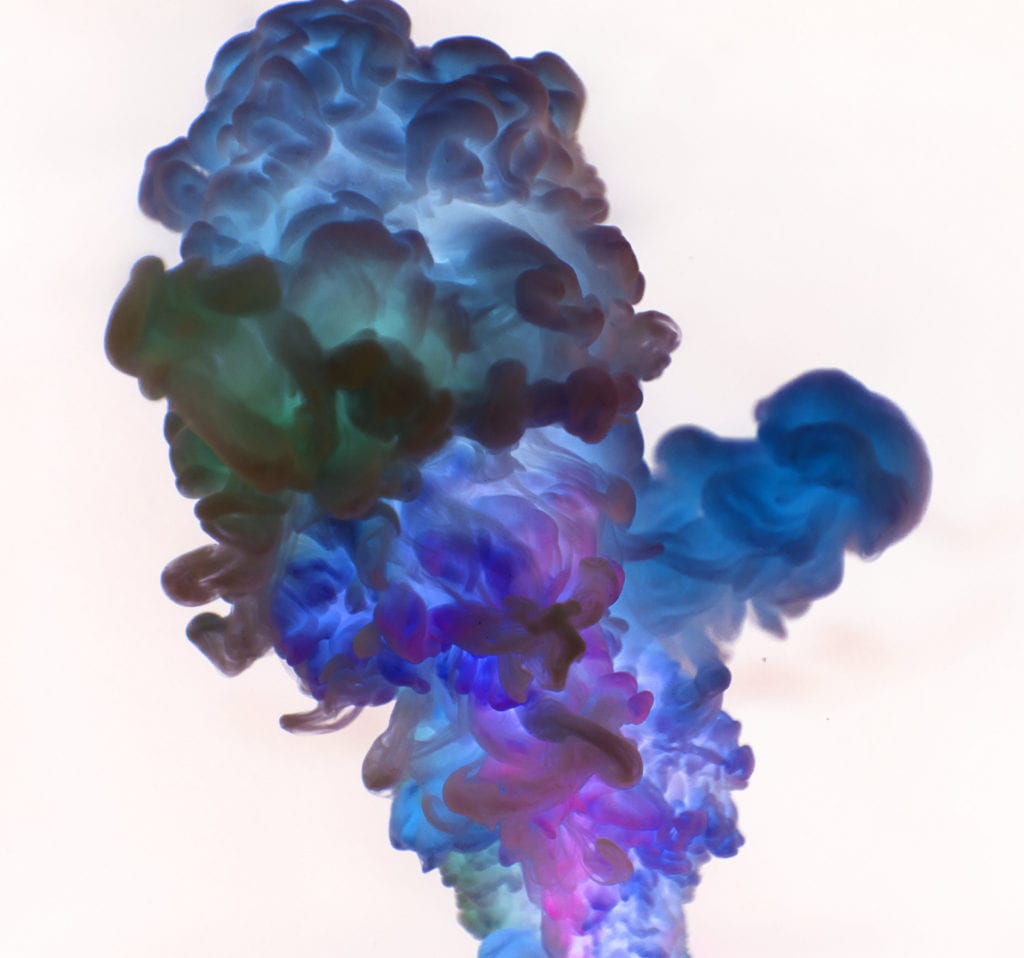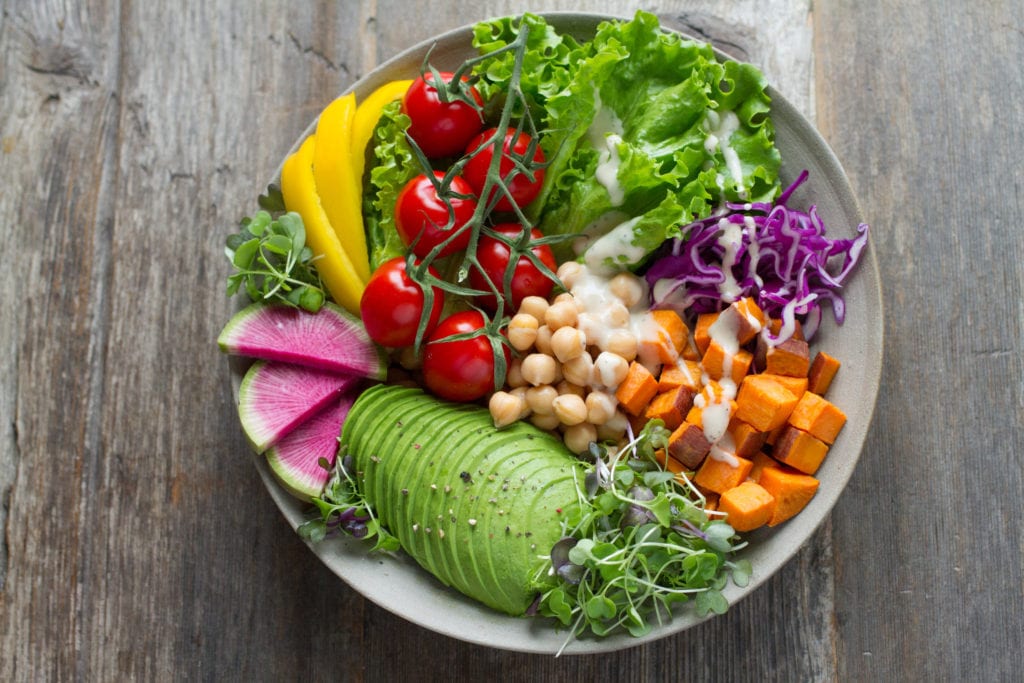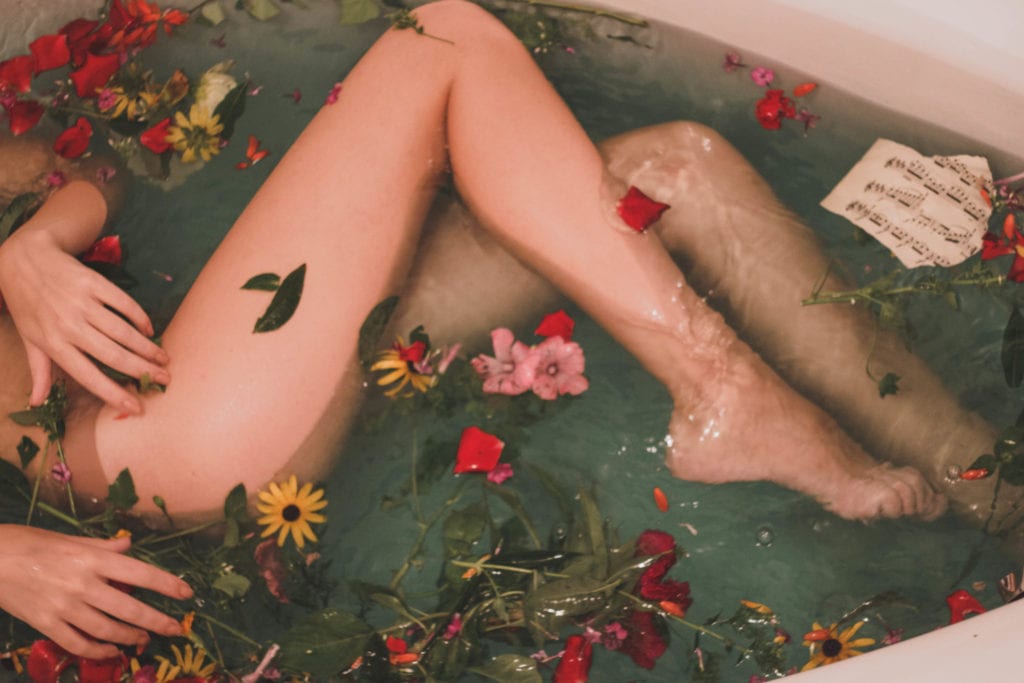
Have you ever wondered why everyone is making a such big fuss over all natural skin care products? It’s not just because it’s “in” to be ‘all-natural’ but there is a physiological explanation to all the hype. Your skin is the largest organ system in the human body and while it acts as a protective barrier, it is not impenetrable or impervious to everyday damage. Studies has shown that up to 64% of things absorbed into the skin up in your bloodstream. (1) That is terrifying because most of the things that are put into beauty products (stabilizers, thickening agents, chemicals), are not regulated by federal industries that are suppose to advocate for our health. At this time there are very little regulations on beauty products and the Food and Drug Administration (FDA) doesn’t need to approve what ingredients are added to personal care products. It is the companies responsibility to test their products safety and if they say it’s ok, then it goes into product. (2)

Abstract blue color drop to the water
Everyday Assaults to you skin
If you knew everything that was damaging your skin, you would want to live in a bubble. Consider all the possible irritants you encounter everyday. Aluminum deodorant, fragrances in the air, dies in your food and makeup, hard/chlorinated water, pollution (Especially in Az), sun damage (Again, Az) etc. Up to 60% of all that can end up in your bloodstream, essentially poisoning your body. So it might be time to start to pay attention to what is going in and on your body.
What’s the deal with Parabens & Phthalates?
Both Parabens and Phthalates are recognized as “safe” ingredients in skin care products but are they really? Parabens act as a preservative because it blocks bacterial growth and mold, and Phthalates act as softeners. Both of these chemicals are considered “Endocrine disruptors” because they interfere with the function of the hormones in the body. They both have been linked to reproductive issues and increased cancer risk. (3) Since we absorb approximately 60% of chemicals into our bloodstream, you can understand how detrimental this can be. With heavy use, the chemicals can build up over time and compound issues (like cancer). This is why is it imperative to know what is in your skin care products so you are not causing yourself harm.

What should you look for in your skin care products?
Just start reading your product labels and do your research before purchasing. You can find some amazing companies and small businesses that are making some wonderful products. The more demand for all natural products, the more the beauty industry will respond.
Next time you purchase you skin care products, here’s what to look for:
· Free from fragrances, chemicals, irritants or preservatives
· Non-allergenic
· Vegan
· All Natural, organic ingredients
· GMO-free
Make your own DIY Products
Alternatively, you can save some money and just make the products yourself. Here is some DIY skin care alternatives website or resources based on your needs.
Cleansers
1. 8 ways to makes your own facial cleanser by Hello Glow
https://helloglow.co/make-your-own-facial-cleanser/
Exfoliate
2. 13 simple exfoliating face scrubs by Homemade for Elle
https://homemadeforelle.com/10-simple-exfoliating-face-scrubs/
Toner
3. 15 ways to make your own homemade toner (Witch Hazel is my personal fav)
https://helloglow.co/ways-to-make-homemade-toner/
Moisturize
4. 9 All-Natural Moisturizers You can find in your Kitchen by Mind Body Green
Nutrition is Arguably the most important part.

Reducing your chemical and irritant exposure is going to do wonders for you skin but that is just scratching the surface (eh? See what I did there?) What about the internal health of the body and how does that translate to the skin? The simple answer is we are what we assimilate. This includes things that we consume. This is why nutrition is arguably one of the biggest factors in healthy skin. Seek foods that contain a lot of antioxidants to fight free-radical damage, high omega-3 fatty acids, and making sure you eat the foods high in Vitamin A, C, E, K and biotin. All of these nutrients are essential in building supporting tissues and helps maintain elastin which gives skin it’s bounce. Check out this website for some ideas on some foods to incorporate for healthier skin. https://www.healthline.com/nutrition/12-foods-for-healthy-skin#section5/
Just Drink Your Water
Human skin is made of 60% of water and that is why hydration needs to be maintained for a healthy glow. Topical applications only go so far, it’s important to drink adequate water throughout the day. Drinking half your body weight in ounces water a day is a good starting point. Adding things like lemon, limes, and herbal tea to your water helps with flavor, if that is something you struggle with.
Your lifestyle matters to your skin
This might be obvious but your lifestyle matter to your skin health. Getting enough sleep, exercising regularly, staying well hydrating and quitting smoking will increase the youthfulness of your skin’s appearance. While you do need about 10-15 minutes in the sun a day for adequate Vit D levels, staying out in the sun for extended periods of time, breaks down elastin and collagen, which causes your skin to age. After 15 minutes it’s important to get in the shade and/or put a protective layer of clothes on.

Natural Skin care is TOTALLY IN!
I am a big advocate for natural skin care. I am in the processes of launching a product soon that utilizing all natural ingredients to help reduce the puffiness, wrinkles, dark circles and fine lines that develop in the under eye area. I love this product and I can not wait to share it so you can feel your most beautiful self.
Just remember, Nature takes time and it might take a while to see results. But, every step you take towards healthier lifestyle will reflect in your skin. So, what are you waiting for? Make the switch to all natural beauty products today and start feeling your best.
References
1. Brown et al. The role of skin absorption as a route of exposure for volatile organic compounds (VOCs) in drinking water. Am J Public Health. 1984 May; 74(5): 479–484.
2. U.S. Food & Drug Administration. “FDA Authority Over Cosmetics.”
3. Braun, J., et al. “Personal care product use and urinary phthalate metabolite and paraben concentrations during pregnancy among women from a fertility clinic.” Journal of Exposure Science and Environmental Epidemiology. 24.




